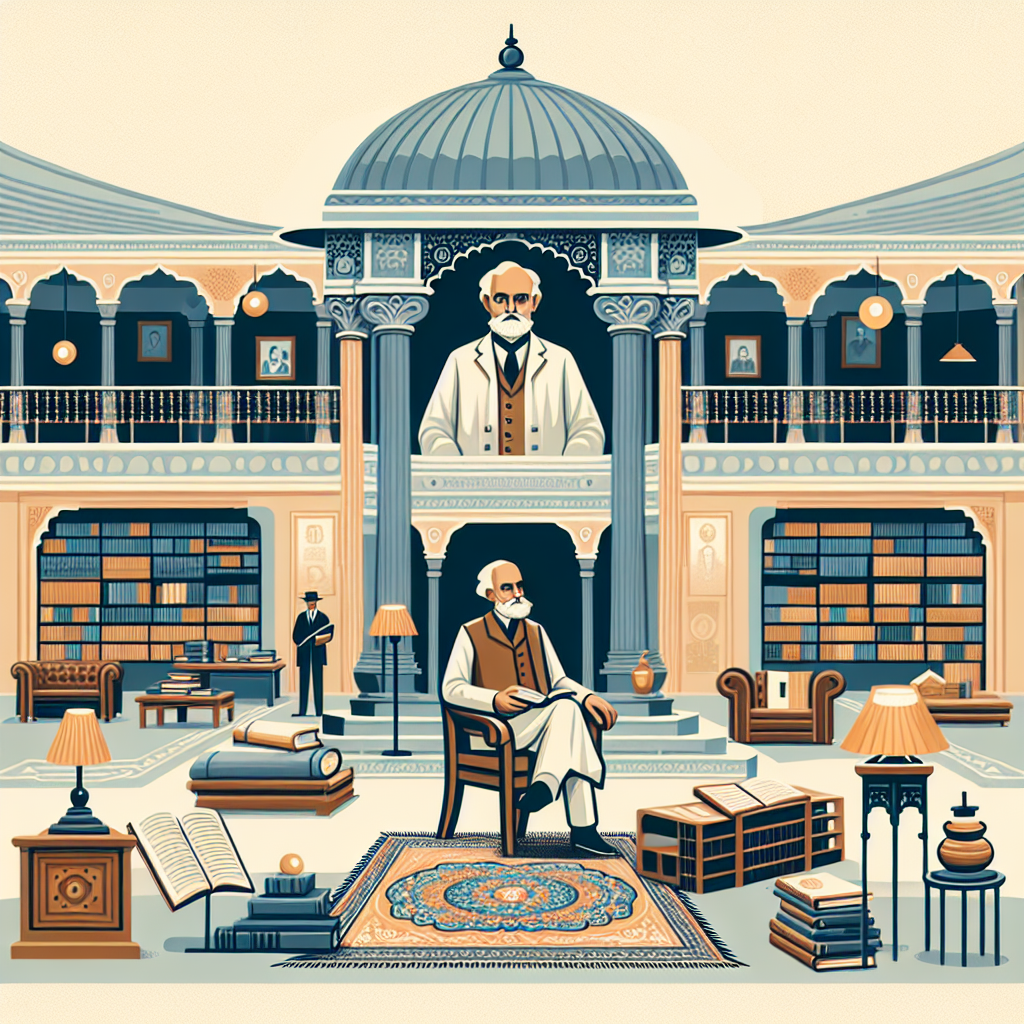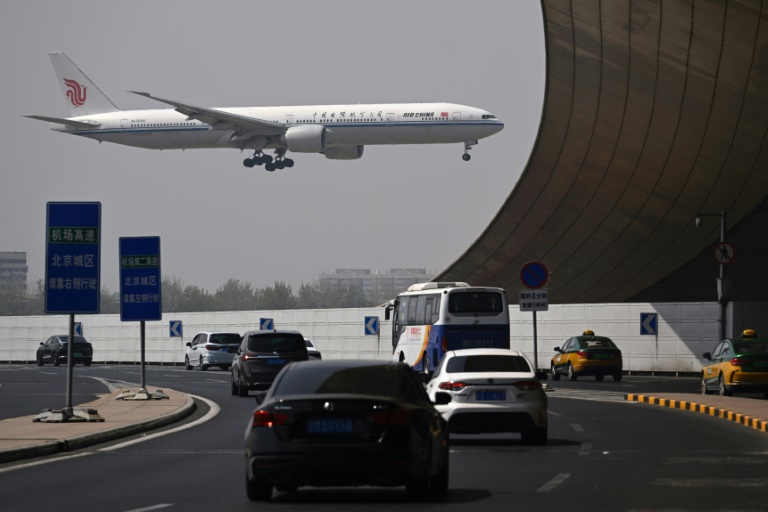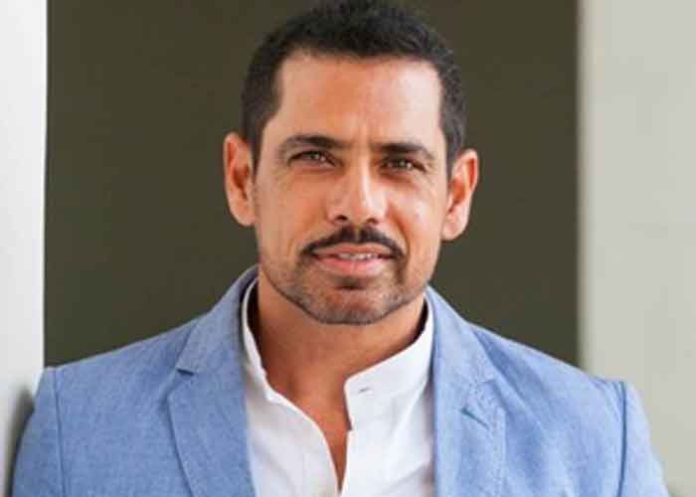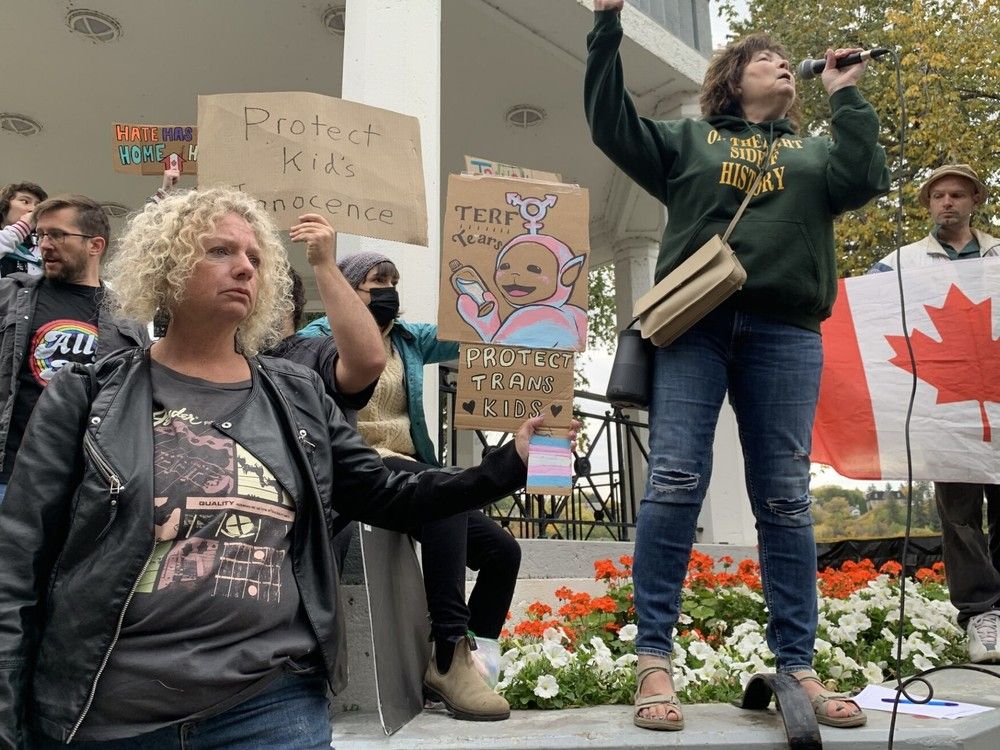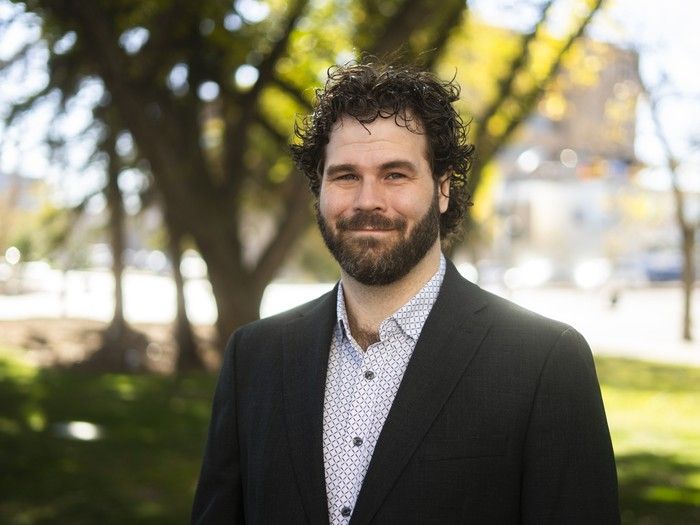PM Modi's approach embodies a harmonious blend of national pride and spiritual heritage, positioning India as a Dhamma bridge (Dhammasetu), not just for Buddhist nations across Asia but for the entire global community. Narendra Modi’s tenure as Prime Minister has leveraged India’s rich Buddhist heritage to achieve cultural diplomacy and foster global connectivity. Buddhist diplomacy isn’t just about cultural connections — it also has tangible boons.
His approach embodies a harmonious blend of national pride and spiritual heritage, positioning India as a Dhamma bridge (Dhammasetu), not just for Buddhist nations across Asia but for the entire global community. PM Modi recently undertook visits to two countries associated with Buddha Dhamma – Thailand (April 3, 2025) and Sri Lanka (April 4 – 6, 2025). On April 3, 2025, PM Modi visited the iconic Wat Phra Chetuphon Wimonmangkalaram Ratchaworamahawihan also known as Wat Pho Temple in Thailand, and gifted a brass statue of the Sarnath-style Buddha in Dhyana Mudra to the King of Thailand, symbolising India’s spiritual heritage and craftsmanship.

He also announced the upcoming exposition of the Holy Relics of Lord Buddha discovered in Aravali, Gujarat, in 1960 in Thailand. During the meeting, PM Modi received a copy of the 108 volumes of Tipitaka, the revered Buddhist scriptures in Pali language, from the Thai Prime Minister Paetongtarn Shinawatra — a token of the everlasting Buddhist traditions shared by the two countries. During his visit to Sri Lanka, PM Modi visited (April 06, 2025) Jaya Sri Maha Bodhi Temple at the historic city of Anuradhapura.
He also met with Most Ven. Pallegama Hemarathana Nayake Thera, Chief incumbent of the great eight Buddhist shrines of Anuradhapura. In a cordial discussion, he shared details about the Devni Mori relics from Gujarat.
He conveyed that these relics would be sent to Sri Lanka in the near future. Significantly, Ven. Pallegama Nayake Thera visited India recently and was accompanied by the Deputy Secretary General of the International Buddhist Confederation (IBC) Dr Porage.
The visit was coordinated by IBC. Ever since his initial days as Prime Minister, Modi has been highlighting India’s Buddhist heritage in different countries. PM Modi’s inaugural visit to Bhutan on June 15-16, 2014, marked a significant step in strengthening India’s relationship with the Buddhist kingdom.
This was followed by his visit to Nepal, the birthplace of the Buddha on August 3-4, 2014. In August 30 – September 3, 2014, expanding beyond South Asia, PM Modi’s first official visit to Toji and Kinkakuji temples, Japan highlighted the cultural resonance of Buddha Dhamma in strengthening bilateral relations. In 2015, PM Modi emphasised Buddha Dhamma’s role in India’s global peace initiatives.
On May 4, 2015, during the International Buddha Poornima Diwas, he highlighted the government’s focus on Buddhist activism as part of its foreign policy. He stated, “Without Buddha, this century cannot be Asia’s century." His visit to China on May 14-16, 2015 included stops at Daxingshan Temple and the Big Wild Goose Pagoda in Ci’en Temple, Xi’an — once known as Chang’an during the Sui and Tang Dynasties (581-907) as a hub for Buddhist thought and practice.
PM Modi’s address on Buddha Jayanti, celebrated on April 30, 2018, at the Indira Gandhi Indoor Stadium in New Delhi, reflected India’s allegiance to Lord Buddha’s teachings and their global relevance. Highlighting the transformative power of the Buddha’s Eight-fold path (Āryāṣṭāṅgamārga), PM Modi called for unity among followers to spread love and compassion worldwide. PM Modi also acknowledged the Archaeological Survey of India’s efforts in restoring Buddhist sites in countries like Afghanistan, Cambodia, Laos, Myanmar, and Vietnam and expressed pride in the government’s initiatives to enhance Buddhist tourism infrastructure, connecting Southeast Asia with India’s significant Buddhist sites.
On September 6-7, 2019, PM Modi and Mongolian President Khaltmaagiin Battulga jointly unveiled a statue of Lord Buddha and his disciples at the Gandan Tegchenling Monastery in Ulaanbaatar. The statue was installed during the SAMVAD dialogue, fostering discussions among Buddhist leaders and scholars on contemporary issues. Gandan Tegchenling Monastery, a renowned center of Mongolian Buddhism and a repository of significant Buddhist heritage, hosted the 11th General Assembly of the Asian Buddhist Conference for Peace (ABCP).
Later, on September 27, 2019, at the 74th United Nations General Assembly, PM Modi emphasised India’s legacy of peace, stating, “India gave the world ‘Buddh,’ not ‘Yuddh’," and called for a united approach to multilateralism and combating terrorism. Talking of the contemporary times, the PM said, “In this new era, we will have to give new direction to multilateralism and to the United Nations" and that “a fragmented world is in the interest of no one". On May 7, 2020, PM Modi extended warm wishes for Buddha Poornima and Vesak celebrations, acknowledging the challenges of physical gatherings due to the pandemic.
He said, “Today the world fights extraordinary challenges. To these challenges, lasting solutions can come from the ideals of Lord Buddha. They were relevant in the past.
They are relevant in the present. And, they will remain relevant in the future". Reflecting on Lord Buddha’s teachings of compassion and perseverance, PM Modi emphasized India’s commitment to global welfare and encouraged continuous service, compassion, and selflessness.
At the Indo-Japan SAMVAD Conference on December 21, 2020, held virtually, PM Modi emphasised the importance of open-minded, democratic, and transparent societies for innovation. He urged a paradigm shift in defining growth and recalled the conference’s journey since its inception five years ago with former Japanese Prime Minister Shinzo Abe. On October 20, 2021, during Abhidhamma Day celebrations at Kushinagar, PM Modi highlighted Lord Buddha’s significant influence on India’s Constitution, referencing the mantra ‘Dharma Chakra Pravartaanye’ displayed in the Parliament.
PM Modi reflected on the historical ties between India and Sri Lanka, recalling how Emperor Ashoka’s son Mahendra and daughter Sanghamitra carried Buddha’s message to Sri Lanka. PM Modi called for reinvigorating cultural ties among nations rooted in Buddhist heritage. On May 15, 2022, the Ministry of Culture, in collaboration with the International Buddhist Confederation (IBC) organized the “Shilanyas ceremony" of the India International Center for Buddhist culture and Heritage (IICBCH) in Lumbini.
PM Modi along with the then Nepali Prime Minister Sher Bahadur Deuba attended the event. PM Modi emphasized Lord Buddha’s teachings as a guide for promoting peace, harmony, and sustainability globally. His visit to Lumbini, a UNESCO World Heritage site, reinforced cultural ties and celebrated the Buddha’s Birth, Enlightenment, and Mahaparinirvana.
On March 20, 2023, PM Modi who accompanied the Japanese Prime Minister Fumio Kishida to Buddha Jayanti Park in New Delhi gifted a Bal Bodhi tree sapling to Kishida, symbolizing the shared Buddhist heritage between India and Japan. India’s hosting of the first-ever Global Buddhist Summit (GBS) on April 20-21, 2023 in the capital, brought together scholars and practitioners to address contemporary challenges through Buddhist philosophy. PM Modi emphasised that Buddha’s teachings offer solutions to global issues like war, terrorism, and climate change.
This summit marked India’s dedication to fostering dialogue and unity among Buddhist nations. PM Modi described Buddha as a consciousness beyond manifestation, uniting humanity in a single thread. He stressed on the relevance of the Buddha’s teachings in addressing modern challenges and noted that India’s recent global achievements are inspired by these ideals.
These efforts not only enhance India’s soft power but also align with his vision of “ Vasudhaiva Kutumbakam “—the world as one family—by advocating for peace, compassion, and harmony on a global stage. By leveraging Buddhism as a tool for cultural diplomacy, PM Modi has worked to strengthen India’s ties with Buddhist-majority nations while promoting a message of peace, tolerance, and shared heritage on the global stage. His efforts to integrate these ideals into governance and international relations reaffirm India’s role as the custodian of Buddha Dhamma in the modern era.
India’s connection to Buddha Dhamma is not just a reflection of its past; it’s a dynamic force shaping its present and future. Baishali Sarkar is Research Associate at International Buddhist Confederation. Views expressed in the above piece are personal and solely those of the author.
They do not necessarily reflect News18’s views..
Politics
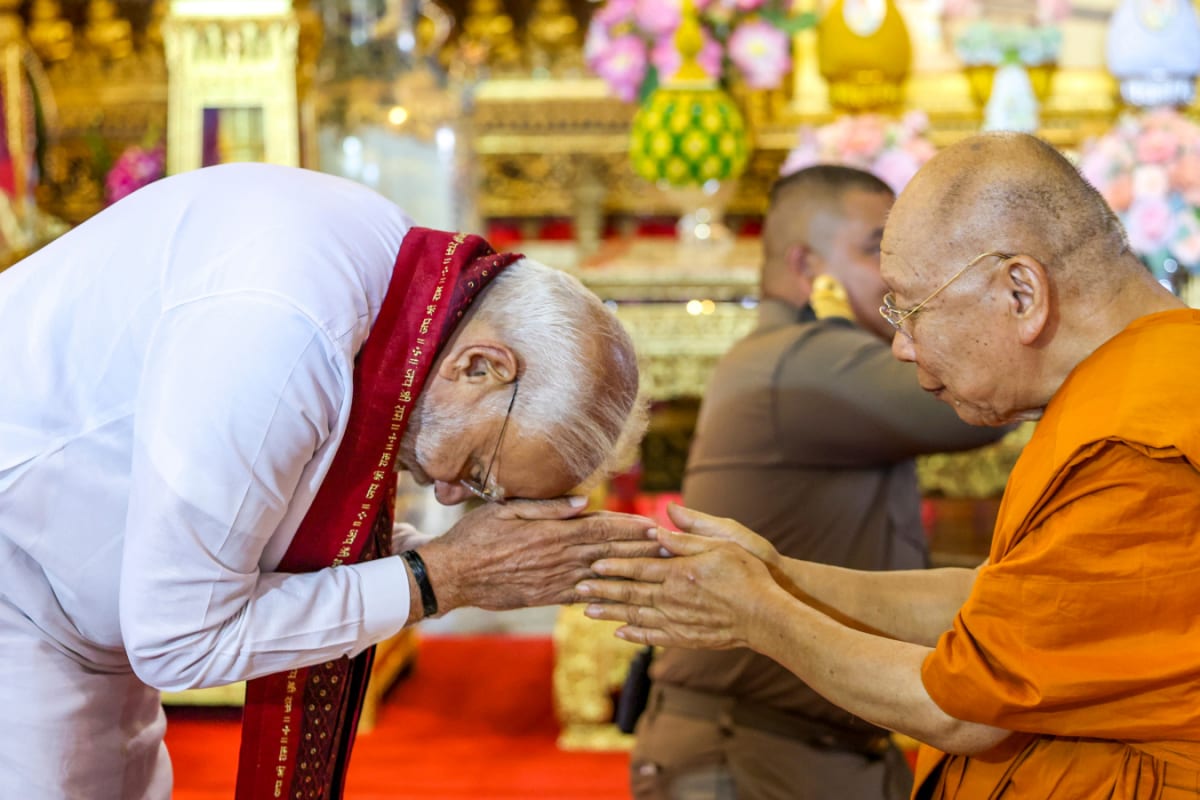
Opinion | India, The Custodian Of Buddha Dhamma In The Modern Era

PM Modi's approach embodies a harmonious blend of national pride and spiritual heritage, positioning India as a Dhamma bridge (Dhammasetu), not just for Buddhist nations across Asia but for the entire global community.



